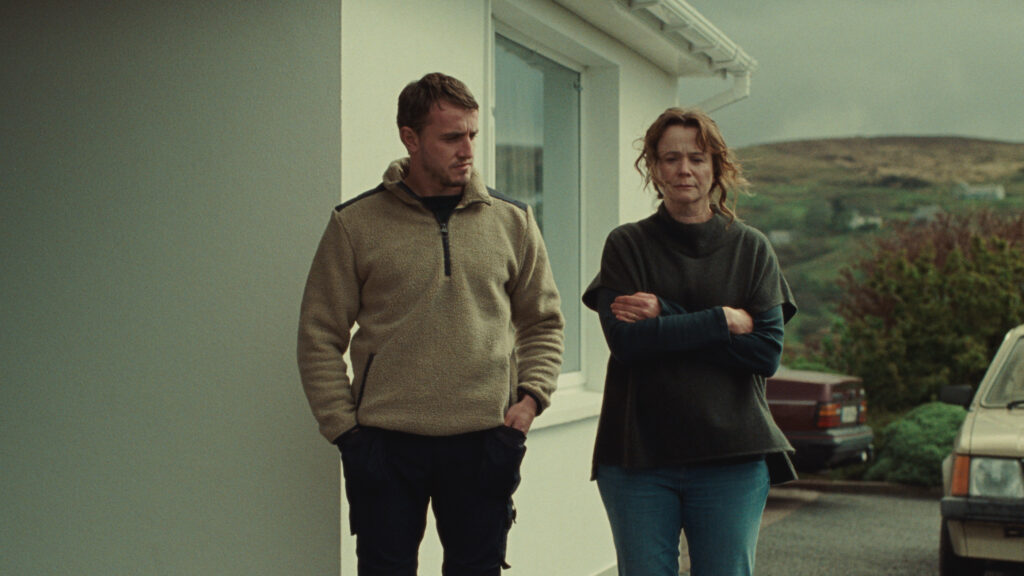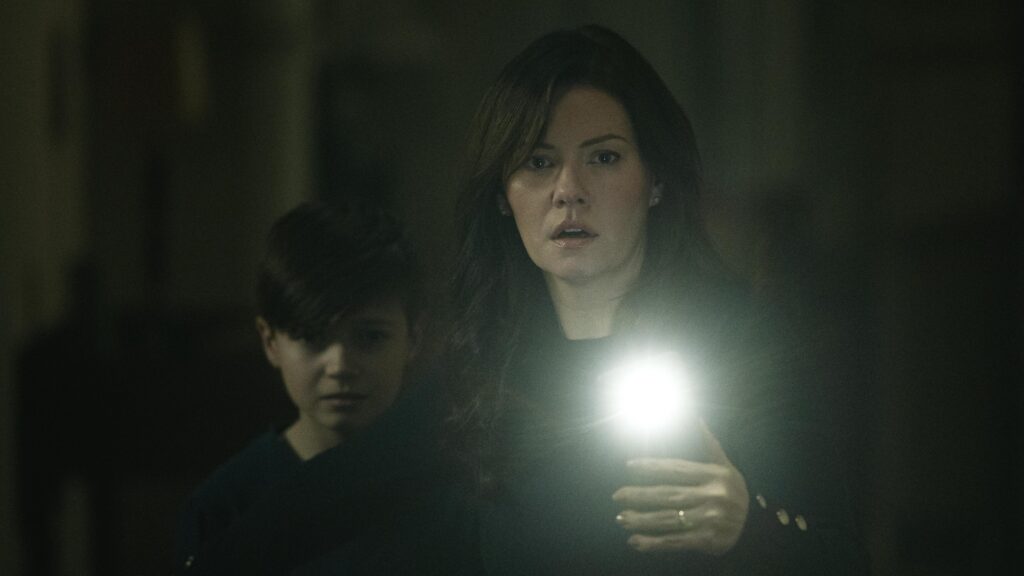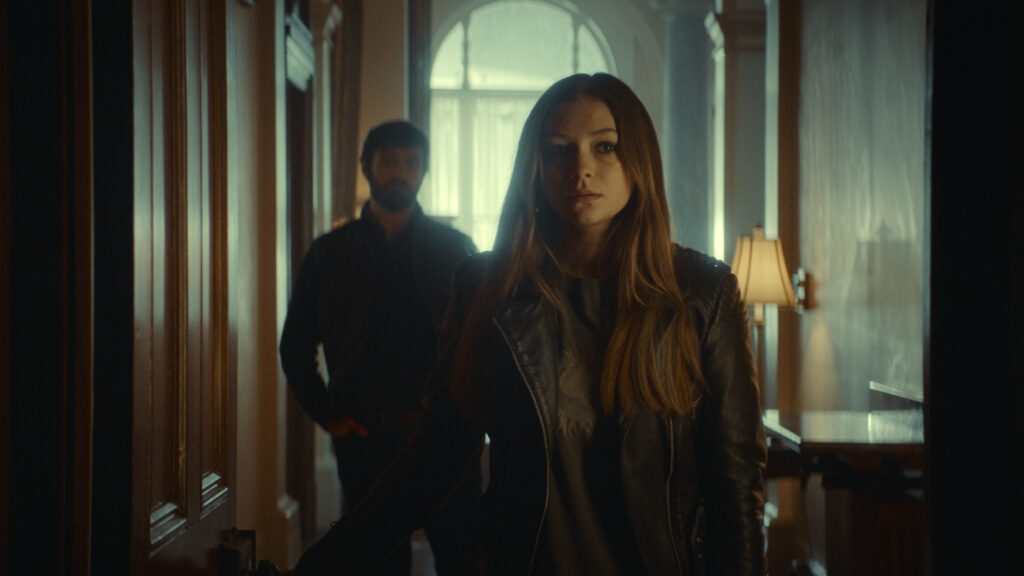March 19, 2023
by Carla Hay
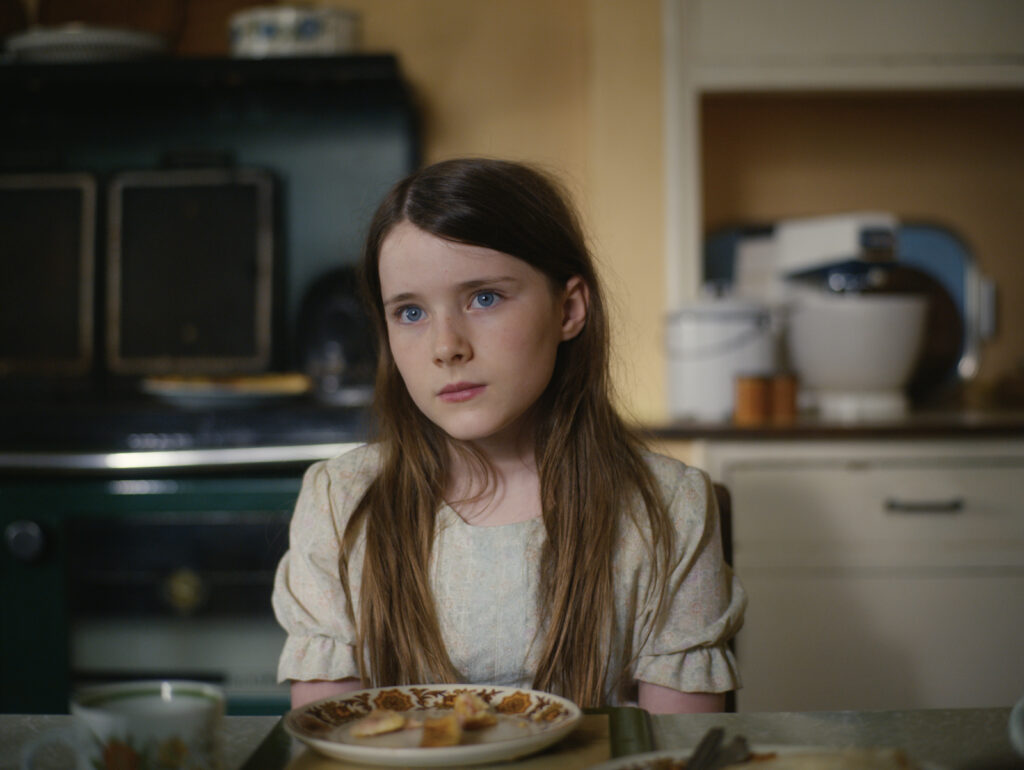
Directed by Colm Bairéad
Irish and English with subtitles
Culture Representation: Taking place in 1981, in unnamed rural parts of Ireland, the dramatic film “The Quiet Girl” features an all-white cast of characters representing the working-class.
Culture Clash: A shy and introverted 9-year-old girl is sent to live with a married couple who are distant relatives for a summer, and she finds out a tragic family secret.
Culture Audience: “The Quiet Girl” will appeal mainly to people who are interested in watching low-key but emotionally touching family dramas.
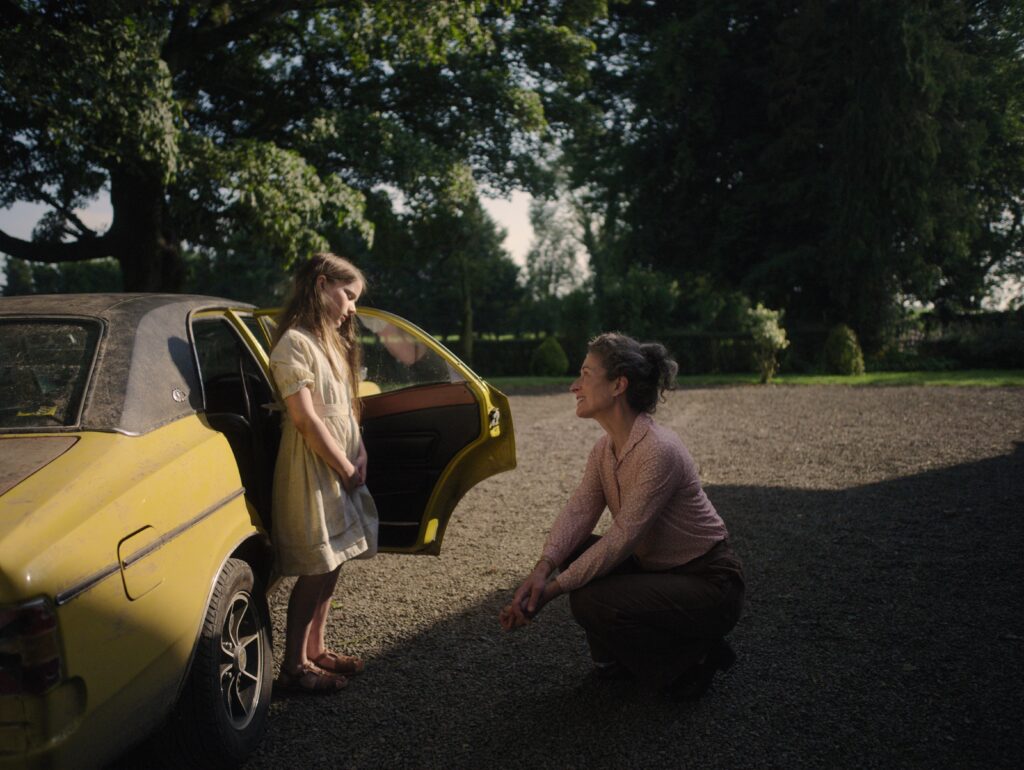
The very accurately titled “The Quiet Girl” is a meditative drama about how an introverted Irish girl spends a life-changing summer away from her troubled home and learns some poignant lessons about grief and family love. This is not a movie that is going to please viewers expecting to see more high-stakes dramatics or emotional meltdowns in the story. It’s a more of reflection of the quiet ways that people evolve or affected by life events.
Written and directed by Colm Bairéad, “The Quiet Girl” is based on Claire Keegan’s 2010 novella “Foster.” For the first two-thirds of the movie, there isn’t much of a plot, but the credible acting by the principal cast members can hold viewers’ interest until the movie’s last third, which is really the emotional heart of the story. “The Quiet Girl” had its world premiere at the 2022 Berlin International Film Festival, where the movie won the a Crystal Bear prize from the Generation Kplus International Jury for Best Film. The movie was also nominated for Best International Feature Film for the 2023 Academy Awards.
In the beginning of “The Quiet Girl,” which takes place in 1981, in unnamed parts of rural Ireland, viewers see that the movie’s title character is 9-year-old Cáit (played by Catherine Clinch) is shy, introverted and mostly neglected in her large, dysfunctional family. (“The Quiet Girl” was filmed in Dublin and County Meath, Ireland.) Her father Dan (played by Michael Patric) is an irresponsible alcoholic who often spends his money on alcohol instead of paying certain people he needs to pay (such as a hay deliverer) to keep the family farm running smoothly.
Dan also cheats on his wife and has the audacity to pick up one of his girlfriends for a secretive tryst while Cáit is in the back seat of the car. Her father comment to this mistress about Cáit: “She’s the wanderer.” Cáit’s mother (played by Kate Nic Chonaonaigh), who doesn’t have a name in the move is preoccupied with helping run the farm and taking care of the growing family. Cáit has three older sisters, and their mother is pregnant again.
At school, Cáit is a social outcast who gets called a “weirdo” by some other girls. At home, Cáit is quiet at the dining table, while her sisters are talkative and mostly ignore Cáit. Sometimes, Cáit hides underneath her bed, as if she’s too timid to face the world. She’s such an introvert, she often seems to be invisible to the people around her. The movie has several scenes where Cáit is in the same room when people talk about Cáit as if she isn’t there.
One day, Cáit is told to get in the car with her father, who drives her far away to the farm home of his distant older cousin Eibhlín Cinnsealach (played by Carrie Crowley) and Eibhlín’s husband Seán Cinnsealach (played by Andrew Bennett), who live on the farm by themselves. It’s the first time that Cáit has met these two relatives. Dan tells Cáit that she’s going to live with Eibhlín and Seán for the summer, maybe longer, but definitely until after Cáit’s mother gives birth. This move comes without any advance notice to Cáit, who is dropped off at Eibhlín and Seán’s home with only the clothes that she’s wearing.
Dan stays for a meal, but then he leaves without seeming to care about any confusion that Cáit must be feeling. Cáit doesn’t know why she was singled out among her siblings to be sent away to live in another household, and her parents don’t tell her why. However, the movie drops some big hints. It’s shown that Cáit is sometimes a bedwetter, which irritates her mother, who has to do the cleaning. Her parents also want to temporarily ease some of the financial burden of taking care of so many kids, by sending away the child who is least likely to protest this move.
Eibhlín is immediately kind and compassionate to Cáit, while Seán is cold and distant to Cáit at first. The pacing of “The Quiet Girl” tends to get sluggish when the movie becomes a series of scenes showing Eibhlín teaching Cáit how to do domestic chores inside the house. Eventually, Seán warms up a little to Cáit, and he shows her how to do domestic chores outside the house.
However, Seán seems to be bothered by Cáit is wearing boys’ clothes when she’s not doing the outdoor chores with him. The boys’ clothes are the only children’s clothes that the couple had in the house when Dan dropped off Cáit to live with the Eibhlín and Seán. Later, Seán starts to feel more comfortable around Cáit after she begins to wear girls’ clothes that Eibhlín buys for her.
Not long after Cáit begins living there, she tells Eibhlín that she overheard Cáit’s mother say that Cáit can live with Eibhlín and Seán as long as Cáit wants. Cáit asks Eibhlín if it’s true. Eibhlín doesn’t directly answer the question. Her response is simply to compare her household to Cáit ‘s household: “There are no secrets in this house. There’s shame in that house.”
Later, when Cáit tells Eibhlín that Cáit’s father didn’t have the money to pay the hay man, Eibhlín asks Cáit if it would offend her parents if Eibhlín gave money to Cáit’s parents. Cáit says it wouldn’t bother her mother, but it would upset her father. The matter is then dropped, but it’s another indication that Cáit was left at this home for financial reasons, because she would be one less mouth to feed. When Cáit is asleep, Eibhlín goes into the room and whispers, “If you were mine, I’d never leave you in a house of strangers.”
Eibhlín and Seán keep mostly to themselves, so Cáit lives a fairly isolated existence with them. Cáit has little to no interaction with children of her own age. However, she gets certain things from this household that she doesn’t have in her parents’ household: kindness, attention and stability, beginning with Eibhlín, and later from Seán. Clinch, Crowley and Bennett give nuanced and effective performances as this trio of people who form a new family unit.
One day, a local elderly villager named Gearóid (played by Martin Oakes) dies. He was well-liked by Eibhlín and Seán, so they bring Cáit with them to the wake. A spiteful gossip named Úna (played by Joan Sheehy) is also at the wake. Eibhlín is polite to Úna but also seems a little wary of her. Úna plays a pivotal role in the story when she spends some time alone with Cáit during the wake.
“The Quiet Girl” is a movie about people who live simple lives on the surface but have complicated interior lives that they are reluctant to show other people. It’s a poignant story about a girl who discovers that the life she is forced to live with her parents isn’t necessarily the life that she deserves. “The Quiet Girl” is the opposite of a flashy movie with oversized personalities, because it takes a contemplative look at how perspectives can drastically change from life’s more subtle moments.
Super LTD released “The Quiet Girl” in select U.S. cinemas for a limited engagement on December 16, 2022, and then re-released the movie in select U.S. cinemas on February 24, 2023. “The Quiet Girl” was released in Ireland on May 13, 2022.

